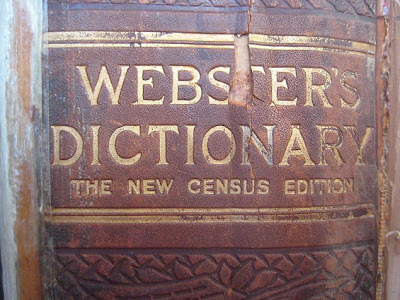 |
| Hi, I'm Millard Fillmore. I was President from 1850 to 1853. Don't remember me? Don't worry. Nobody does. Oh, well... |
That being said, I won't bore you with the boring parts of Fillmore's life or his presidency – that would take way too long. Instead, I'll offer a few interesting, perhaps humorous tidbits about the only U.S. President with double "l"'s in both his first and last name. Here goes...
1) Fillmore is partly responsible for the preponderance of Japanese automobiles on the road today.
I should probably explain, huh? During his presidency, Millard – you don't mind if I call him Millard, do you? – sent Commodore Matthew Perry...
...No, not that Matthew Perry! This Matthew Perry...
Anyway, Millard sent Perry to Japan to open that small island nation up to Western trade. And trade they did! And trade they do! And the rest is history.
2) California's very existence as a state is Fillmore's fault.
Sick of all the nonsense that comes out of Hollywood these days? Maybe you have a personal agenda against San Franciscans? You think San Diego isn't classy enough? Blame Fillmore. As part of the Compromise of 1850, which Fillmore signed into law shortly after his inheriting the presidency (Zachary Taylor had to die for Millard to get the job!), California was admitted into the Union as the 31st state.
3) The "George Jefferson" of chief executives, Fillmore was the first non-wealthy (code words: "distinctly middle class") man to ascend to the U.S. presidency.
Fillmore was not born into money, nor did he marry into wealth, nor did he achieve enough success personally to ever become extraordinarily wealthy. Millard was the first President with this type of "resumé," but he was certainly not the last. Many later Presidents would be able to tell their own "movin' on up to the East Side" success stories.
4) Fillmore was anti-everything during his political career...except anti-slavery.
Millard's first gig in politics was as a member of the New York State Assembly. He had run and won as a member of the Anti-Masonic Party. Elected Vice President as a Whig (Whigs were anti-Andrew Jackson, anti-Democratic, and anti-tyranny), Fillmore ran for President again (a few years after his term had expired) as a member of the American Party, which was an affiliate of the Know-Nothing Movement. The Know-Nothings were anti-immigrant and anti-Catholic. In regards to slavery, Fillmore stated, "God knows that I detest slavery, but it is an existing evil... and we must endure it and give it such protection as is guaranteed by the Constitution."
So WE must endure it, must WE, Mr. Fillmore? Well, you certainly look white to me, so I don't think you had to endure ANYTHING! But I digress...
5) Fillmore's son Powers was quite possibly a closeted homosexual.
A close friend of future President Grover Cleveland, Millard Powers Fillmore (the President's son) was described by Cleveland as being "odd...in many ways." Which means nothing, of course. Speculation, however, derives from the fact that Powers never married and never had children (both uncommon at the time), and that his (Powers') will specifically ordered his personal correspondences – including those with his father, Millard – to be destroyed upon his death. And they were – so we'll never know for sure. Not that it really matters anyway.
6) Our fatally-flawed National Banking System is also partially Fillmore's fault.
While serving as the New York state comptroller, Fillmore revised New York's banking system, making it a model for the future National Banking System. Nice work, Millard!
7) When Fillmore took office after the death of Zachary Taylor, the entire cabinet offered their resignations.
The thing is, Taylor and Fillmore, though elected together, were diametrically opposed in their views about slavery. Taylor was vehemently anti-slavery and refused to sign the Compromise of 1850. Then Taylor just up and died, and Fillmore said something like, "Sure, guys, whatever you want," and – poof! – it was law. The cabinet members saw that coming a mile away and wanted no part of it.
The cabinet members that Fillmore appointed to replace Taylor's people were a motley crew of historical coincidences. Fillmore's first Secretary of State, Daniel Webster...
...a seriously creepy-looking dude, was the cousin of the guy who originally wrote Webster's Dictionary.
The guy who succeeded Webster as Secretary of State, Edward Everett...
...was an accomplished orator who, in 1863, was invited to be the keynote speaker at the National Cemetery in Gettysburg, Pennsylvania. Then-President Abraham Lincoln was also slated to speak at the memorial. Everett spoke for over two hours, while Lincoln spoke for only two minutes. Remarkably, schoolchildren today still memorize the words that Lincoln spoke that day. Everett remains simply "that other guy."
Fillmore's first Secretary of the Navy was Billy Graham...
No! Not that Billy Graham! (He's old, but he's not that old!) This Billy Graham...
Millard's second Secretary of the Navy was John Kennedy...
No, not that John Kennedy! (Will you please stop jumping to conclusions?) This John Kennedy...
8) Millard's last words were soup-related.
Suffering from the aftereffects of a stroke, the 74-year-old Fillmore reportedly said to his caregiver, "The nourishment is palatable," then promptly collapsed into his bowl of soup and expired. (I'm embellishing that last part, but both the quote and the reason for him saying it are true.)
9) Fillmore's tombstone is pink.
For some strange reason, Millard Fillmore's family decided to mark his burial site with a large pink obelisk. Not very masculine if you ask me, but it is what it is. Rest in peace, Millard.



















No comments:
Post a Comment